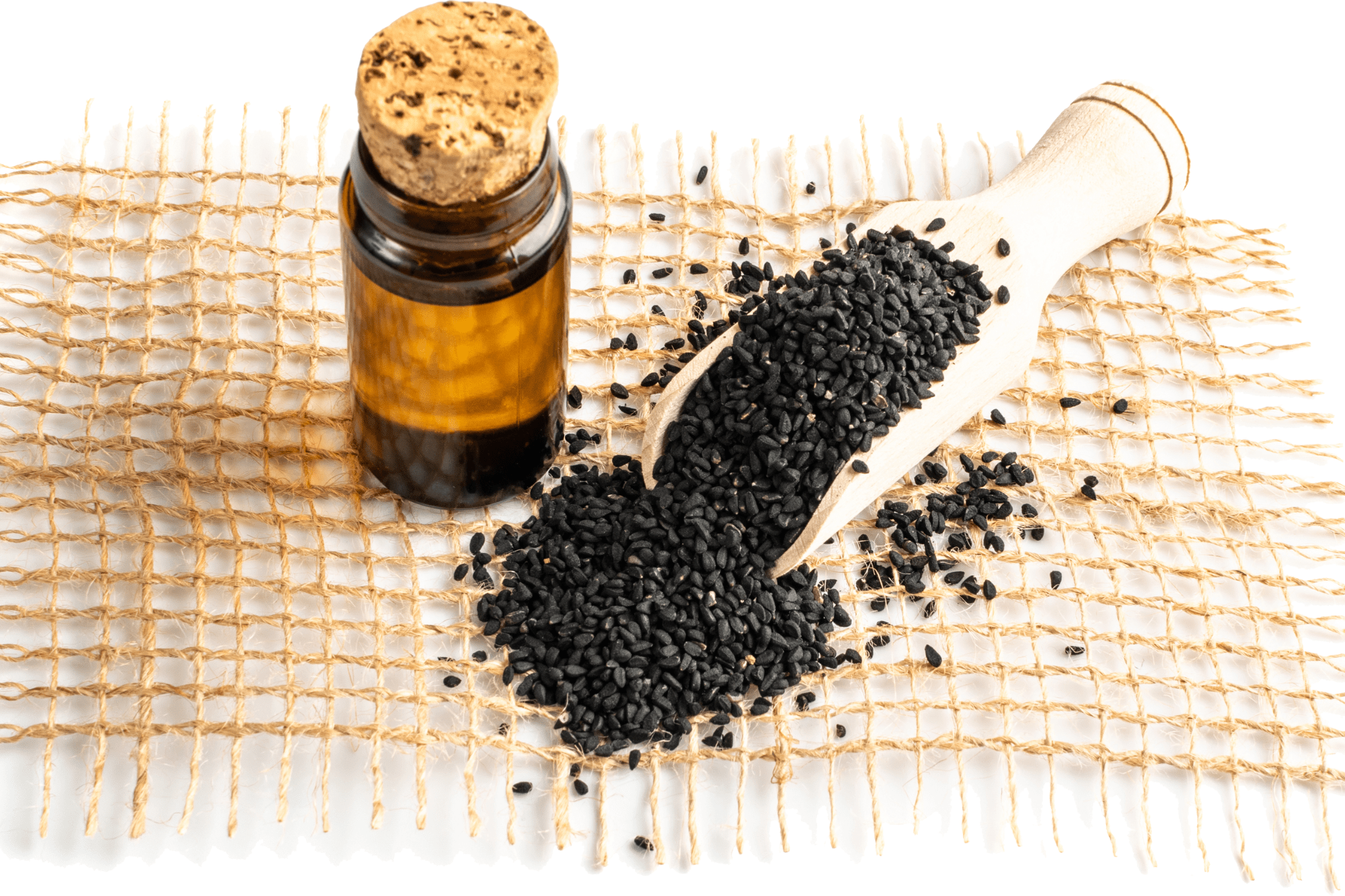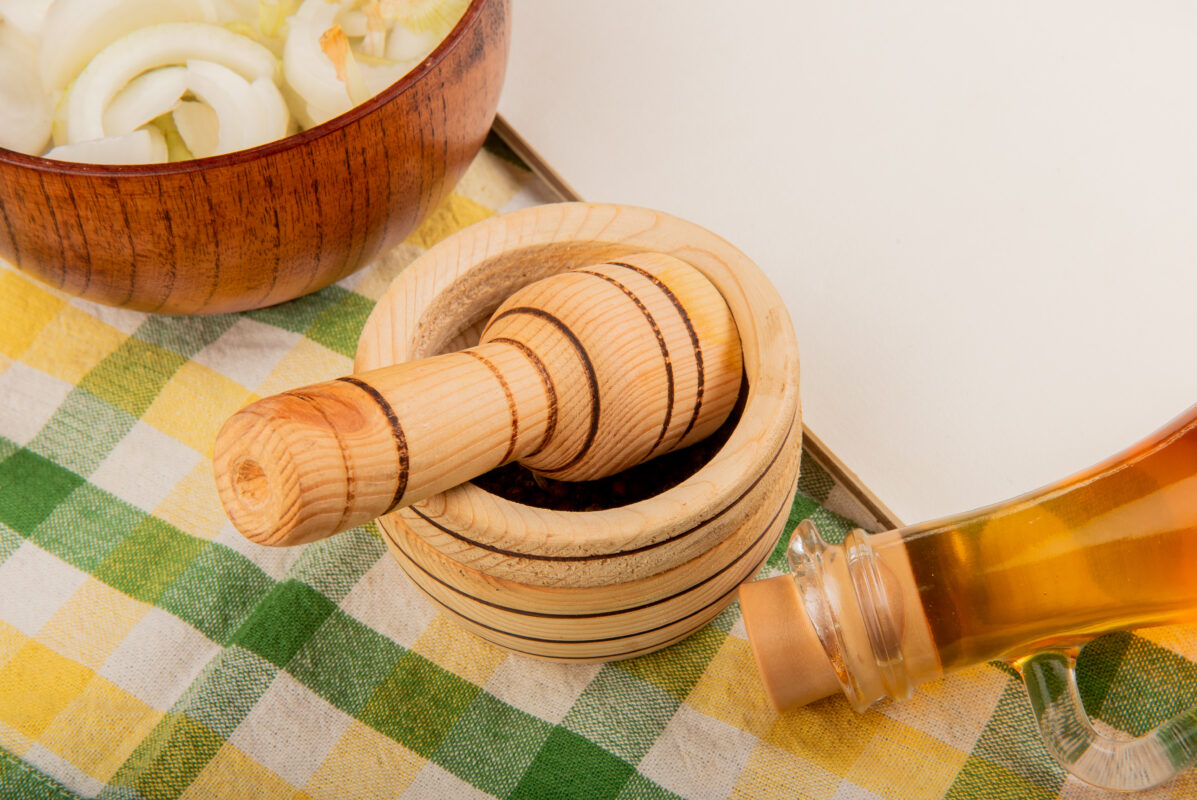Blog
The Traditional Kolhu Method: Extracting Oil in Ancient Way

Today, as industrialization and chemical processing dominate our food systems, there is a growing desire to return to authenticity and purity. Consumers seek natural, less-processed foods that promote health and provide them with energy. The resurgence of the wooden traditional Kolhu method, a centuries-old oil extraction technique that has been keeping villages alive for thousands of years, can be viewed as one of the most important renewals of this movement towards conscious living.
We have utilised this age-old wisdom at Matrika Natural Foods, where we are determined to make cold-pressed oils in the same way our predecessors did and not by cutting corners. Here in this detailed tutorial you will know about the kolhu (or ghani or chekku), its wonderful history, the complex process, its amazing health advantages and why this technique is far better than the modern ones. We shall explore the realm of conventional oil mining and the revelation as to why the Kolhu technique is gaining serious ground again.
What is the Wooden Kolhu (Ghani) Method?
The Kolhu is a simple oil extraction tool that is considered holy in India, Southeast Asia, and the Middle East. It is known to extract pure, nutritious oils out of the seeds and nuts without causing harm to the product, as heat or chemicals do. The kolhu has been traditionally made of neem or babul wood, with a low speed – usually between 4 and 7 revolutions per minute (RPM). This mild procedure makes the frictional heat insignificant, which makes the oil preserve all its natural qualities.
Structure and Functionality:
- Chamber: The base is made of wood or stone and is strong and bowl-shaped.
- Pestle: A heavy wooden pestle turned by bullocks or by a motor.
- Operation: Seeds (mustard, coconut, groundnut, etc.) are put in the chamber.
The seeds are crushed and pressed by the pestle, which releases the oil slowly.
Major Benefit: It is completely cold-pressed, and the temperature will not be higher than 40°C (104°F), so it does not affect the natural flavour or aroma of the oil and preserves its nutritional value.
The Ancient Origins: Rooted in Tradition
The traditional Kolhu method has survived the test of time and traces its origins back to the Indus Valley Civilisation, dating back to a span of 5,000 years. The Ayurvedic texts (Charaka Samhita) of antiquity emphasise the benefits of oils prepared by slow, cold means with preference, advising them to be used in:
- Use them for cooking and digestion
- Skin health and treatments
- Hair and scalp nourishment
We are preserving these practices while also restoring them to promote a healthy and sustainable food system.
Expertise: Step-by-Step Guide to Wooden Kolhu Oil Extraction
To grasp the superiority of the kolhu in contemporary ways, it is necessary to understand how it works. This is the process in detail:
1. Careful Seed Selection
The traditional Kolhu method will start with the sourcing of high-quality, chemical-free seeds. It can be mustard, groundnut, coconut or sunflower, but only the best and unstained seeds are adopted. This is the first step; quality seeds produce quality oil.
2. Soft Roasting (Where possible)
In some oils, such as groundnut or sesame, seeds are roasted at low temperatures. This is not cooking them; it is just to help them improve the natural aroma and flavour profile. More importantly, the roasting is done in a gentle process so that all nutrients are not lost to too much heat.
3. Loading the Kolhu
The seeds that are ready are put in the wooden chamber. The rotation can be driven either by the old-fashioned bullocks or the new motors. The construction of the chamber, normally done of neem or babul wood, is crucial in maintaining the integrity of the oil.
4. Slow, Cold Pressing
The seeds are pressed and ground up as the pestle is turned. The extraction process is not fast and is carried out at room temperature. It is vital that the heat is not present; it prevents nutrient loss and oxidation and produces the oil as similar to its natural state as possible.
5. Natural Filtration and Oil Collection
After extraction, the oil is filtered naturally using cotton cloth. This mild filtration helps to eliminate seed particles but not nutrients and antioxidants of the oil. The leftover residue is not wasted since it is an important by-product referred to as oil cake; this is usually used in the form of organic fertiliser or nourishing animal food.
6. Bottling for Purity
The bottled end product is packed in glass or food-grade containers to ensure purity and to exclude contamination. There are no preservatives, additives or refineries. The outcome: cold-pressed oil, pure and ready to cook.
Why Wooden Kolhu is Superior to Modern Metal Methods
High-speed steel or metal expellers are used to extract most commercial oils presently. These machines produce much friction and heat, perhaps over 200 degrees Celsius (392 degrees Fahrenheit), and are related to chemical solvents or refining. What is left is oil that might appear clear and good to the eyes, but one that has lost its natural nutrients and flavour and is deprived of its therapeutic characteristics.

Unique Benefits of the Wooden Kolhu Method
1. Anti-Microbial and Non-Reactive Properties
Neem and babul woods are antimicrobial by nature. Their reaction with oil is not notable, and hence the process of extraction is hygienic, with pure and undispersed oil being extracted. Metal grinders, on the contrary, are capable of leaching chemicals and unwanted reactions, leading to poor quality of oil.
2. Low Heat, Maximum Nutrition
The slow and cold pressing of the kolhu preserves all the vitamins, essential fatty acids, and antioxidants. High temperatures in modern processing destroy these delicate nutrients, resulting in a nutritionally inferior product.
3. Authentic Taste and Aroma
Wooden kolhu’s retain the original flavour and smell of the oil. This has been brought about directly by the soft procedure and the inert nature of the wood. It is detectable, fresh, aromatic, and true to the profile of the seed.
4. Environmental Friendliness
The oils extracted by Kolhu are not only healthier but also healthier for the planet. It is energy-efficient and generates less waste to ensure that it encourages sustainable agriculture through the use of oil cake as an organic fertiliser. There are no industrial wastes or polluted emissions.
Frequently Asked Questions (FAQs)
Q1) Is Wooden Kolhu Oil Safe for Everyday Cooking?
Ans: Absolutely! Oils extracted using Kolhu can be used in all forms of cooking, like frying, sauteing and salad dressings. They do not lose their nutritional profile; therefore, they are not only safe but also beneficial.
Q2) Do Kolhu Oils Have a Shorter Shelf Life?
Ans: Although the oils of kolhu are unrefined and have no preservatives in them, kept cool and in the shade and in tight vessels, they last many months. The fact that no chemicals have been added implies that you have a very natural product.
Q3) Are Wooden Kolhu Oils Pricier?
Ans: The painstaking, small-scale character of kolhu extraction could make these oils costlier than mass-produced options. Nevertheless, they are a great investment in your health, as they are high quality, with health benefits, and eco-friendly.
Q4) Can Kolhu Oil Be Used Topically?
Ans: Yes! Traditional medicine and Ayurveda have used kohlu oils as a skin and hair care product for thousands of years. They are natural and pure, making them ideal for use outdoors.
Why Choose Matrika Natural Foods?
At Matrika, Natural Foods are used to perform the ancient kolhu process. This is a natural, experimental method of preserving the purity, smell and nutrition of each drop of oil. We blend the outdated knowledge with the current hygiene level to ensure that each bottle has equal health benefits as nature intended.
Our oils are pure, unrefined and low temperature cold pressed. This preserves valuable nutrients and natural antioxidants that are usually lost in the process of industrial refining. We do not add any chemicals, preservatives, or additives, so you can taste the natural oils with its actual taste and health benefits.
We are concerned about the environment and your health, hence we attempt to produce minimal waste in packaging. Trust and openness are the two guiding principles for every step at Matrika. We are not merely producing oils, but we are promoting a healthier and more conscious lifestyle.
Conclusion
The traditional Kolhu method is a tribute to the intelligence of the people of the past – a system that enforces health, sustainability and authenticity. You are making a healthy choice for yourself and promoting the traditional farmers, ecological production, and the restoration of ancient crafts by taking kolhu-extracted cold-pressed oils.
The kolhu is becoming more applicable than ever due to the rise of natural, minimally processed foods that people are in demand of. Introduce the freshness, taste and wholesomeness of ancient oils – know the difference that centuries of wisdom can bring to your daily life.
Are you willing to enjoy the richness and purity of the traditional oils? Savour our entire collection at Matrika Natural Foods and rediscover the flavour and wellness of real, cold-pressed oils.
